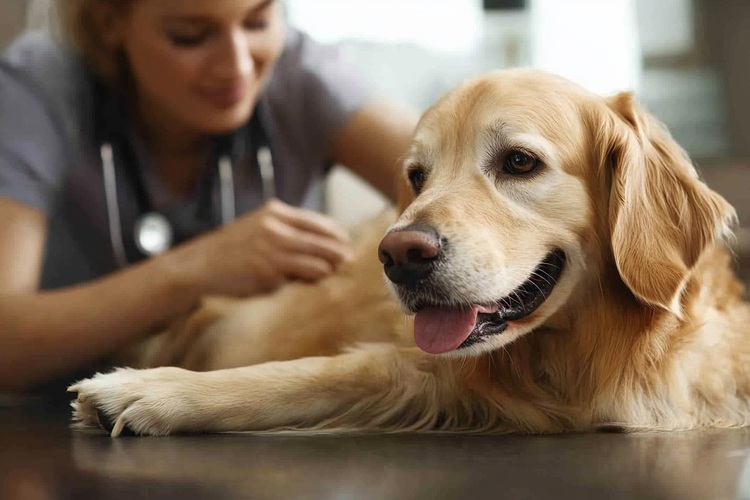Understanding Your Dog: A Guide to Working with a Behavior Specialist
When your furry companion exhibits challenging behaviors, a dog behavior specialist can be your greatest ally. These trained professionals understand the complex psychology behind canine actions and can help transform problematic behaviors into positive ones through science-based methods and personalized training approaches.

Understanding your dog’s behavior is crucial for maintaining a harmonious relationship with your pet. When behavioral issues arise, they can disrupt your household and cause stress for both you and your canine companion. This is where a dog behavior specialist comes into play, offering expertise and guidance to address complex behavioral challenges.
What is a Dog Behavior Specialist?
A dog behavior specialist is a professional who has extensive training in canine psychology, learning theory, and behavior modification techniques. Unlike general dog trainers who focus primarily on teaching basic commands, behavior specialists delve deeper into the underlying causes of problematic behaviors. They assess factors such as a dog’s environment, history, health, and temperament to develop comprehensive behavior modification plans. These specialists typically hold certifications from recognized organizations such as the International Association of Animal Behavior Consultants (IAABC) or the Certification Council for Professional Dog Trainers (CCPDT).
When Should You Consult a Dog Behavior Specialist?
Certain behavioral issues warrant professional intervention beyond basic training. Consider consulting a dog behavior specialist if your pet exhibits aggression toward people or other animals, severe separation anxiety, compulsive behaviors like excessive licking or tail-chasing, or extreme fearfulness. Other indicators include resource guarding, destructive behaviors that don’t respond to conventional training, or significant changes in behavior that might signal underlying health issues. Early intervention is key—addressing these problems promptly can prevent them from becoming ingrained habits that are harder to modify later.
The Assessment Process with a Behavior Specialist
When you first meet with a dog behavior specialist, expect a thorough evaluation process. The specialist will typically begin with an in-depth interview about your dog’s history, including adoption background, previous training, daily routines, diet, exercise regimen, and the specific behaviors causing concern. Many specialists will request to observe your dog in their home environment to see the problematic behaviors firsthand and understand contextual triggers. This comprehensive assessment allows the specialist to identify patterns and potential causes for the unwanted behaviors, forming the foundation for an effective treatment plan.
Treatment Approaches and Behavior Modification Plans
Dog behavior specialists employ various evidence-based techniques tailored to each unique situation. Common approaches include counterconditioning (changing your dog’s emotional response to triggers), desensitization (gradually exposing your dog to triggers at a level that doesn’t provoke a reaction), and positive reinforcement training (rewarding desired behaviors). A comprehensive plan might also include environmental modifications, enrichment activities, and management strategies to prevent problematic behaviors while training is underway. The specialist will demonstrate techniques during sessions and provide detailed instructions for you to implement at home, as consistency is crucial for success.
Working with Your Veterinarian and Behavior Specialist
Collaboration between your veterinarian and dog behavior specialist is often essential for addressing complex issues. Many behavioral problems can have underlying medical causes—pain, neurological conditions, hormonal imbalances, or sensory decline might manifest as behavior changes. A veterinarian can rule out or treat these medical issues while the behavior specialist addresses the psychological aspects. In some cases, veterinary behaviorists (veterinarians with specialized training in animal behavior) might prescribe medication to help manage severe anxiety, aggression, or compulsive disorders as part of a comprehensive treatment approach.
The Cost of Working with a Dog Behavior Specialist
Professional behavior consultation services vary widely in pricing structure and overall cost. Initial consultations typically range from $100 to $300, depending on the specialist’s credentials and location. Comprehensive behavior modification programs might cost between $500 and $2,000, which often includes the initial assessment, development of a customized plan, follow-up sessions, and ongoing support. Some specialists charge hourly rates ($75-$200 per hour), while others offer package deals for specific issues.
| Service Type | Typical Cost Range | What’s Included |
|---|---|---|
| Initial Consultation | $100-$300 | Behavior assessment, history review, initial recommendations |
| Single Session | $75-$200 | 1-2 hour training/modification session |
| Basic Package | $350-$750 | Initial consultation plus 2-4 follow-up sessions |
| Comprehensive Program | $800-$2,000 | In-depth assessment, customized plan, 5+ sessions, phone/email support |
| Virtual Consultation | $50-$150 | Remote assessment and guidance via video call |
Prices, rates, or cost estimates mentioned in this article are based on the latest available information but may change over time. Independent research is advised before making financial decisions.
Success Stories and Realistic Expectations
While many behavioral issues can be significantly improved with professional intervention, setting realistic expectations is important. Some behaviors may be managed rather than completely eliminated, particularly those with strong genetic components or those that have been reinforced over many years. Success depends on multiple factors, including the specific behavior, its duration and severity, the dog’s temperament, and perhaps most importantly, the owner’s commitment to consistently implementing the recommended strategies. Improvement typically occurs gradually over weeks or months, rather than overnight. Celebrate small victories along the way, as these incremental changes often build toward substantial long-term improvement in your dog’s behavior and quality of life.
Working with a dog behavior specialist requires patience, consistency, and dedication, but the results can transform your relationship with your canine companion. By addressing problematic behaviors at their root cause, you can create a more peaceful household and a happier, well-adjusted dog.
This article is for informational purposes only and should not be considered medical advice. Please consult a qualified healthcare professional for personalized guidance and treatment.




